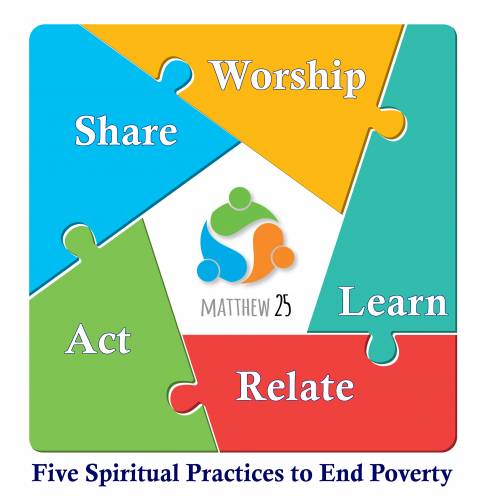What is “systemic” poverty?

Communities build well-being and address poverty through activities such as teaching gardening and learning to grow local foods. Photo courtesy of Mark Hare.
Systemic poverty refers to the economic exploitation of people who are poor through laws, policies, practices and systems that perpetuate their impoverished status. We live in a world where not all have equal access to education, transportation, fresh food, financial resources, clean air, water or healthy environments, employment with a living wage, healthcare, benefits, citizenship, and affordable housing. This lack of access creates generational cycles of poverty and a racial wealth gap that are systemic in nature. An individual cannot change their economic and social location easily by just “working harder.” Meanwhile the many, interlocking disadvantages often are compounded by choices to stay near family or a particular location or employment opportunity, or by gender and racial injustice, trauma, violence, immigration status, impacts from climate change and environmental degradation, and other complicating issues. Download the full FAQ (pdf).
What does our faith demand?
Seven Faith Assertions ground our work to end systemic poverty in the biblical tradition, our Reformed theology, our confessional heritage and our Presbyterian policies. They can be used together or separately to lay a foundation for your congregation’s anti-poverty work. Incorporate them in worship liturgically as a “declaration of faith,” include them in newsletters, post them on the church’s website, distribute them to poverty study and discussion groups. Excerpt:
“We believe Jesus Christ models how we are to live in community and to confront systems of injustice, including poverty. Jesus Christ taught us to care for the vulnerable, to be a good neighbor, and to provide food to the hungry. Christ came to proclaim good news to the poor. Jesus Christ came not to condemn the world, but to save it.” Download all seven Faith Assertions (pdf).
How Do We Eradicate Systemic Poverty?
While the following is not an exhaustive list, a collaborative group of Presbyterians who studied Matthew Desmond’s book “Poverty by America” together have created this PDF hand-out that highlights some of Desmond’s proposed solutions and linked to PC(USA) policies and statements that agree with those proposals.
Find resources and action suggestions for each of the five spiritual practices:

Also available:
- Poverty Resource Packet (pdf) containing information about the five spiritual practices, resources and action suggestions for each, core principles, assessment questions, faith assertions, information about strategic domestic and global partners, and an FAQ.
- 5 Spiritual Practices to End Poverty, a poster from the Presbyterian Hunger Program, shows examples of groups who are engaging issues of ending poverty and building community wholeness.
Who do we contact at the Presbyterian Mission Agency, to learn more, to invite speakers and to brainstorm further?
While all PMA staff stand ready to assist Presbyterians, congregations, mid-councils and networks, these staff are coordinating a staff roundtable on Matthew 25 eradicating systemic poverty: ellen.sherby@pcusa.org, rebecca.barnes@pcusa.org, alonzo.johnson@pcusa.org, carl.horton@pcusa.org. PC(USA) programs specifically geared towards addressing root causes of poverty in the last 50+ years include the Presbyterian Committee on the Self-Development of People (pcusa.org/sdop), and the Presbyterian Hunger Program (pcusa.org/hunger).
